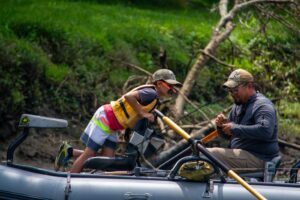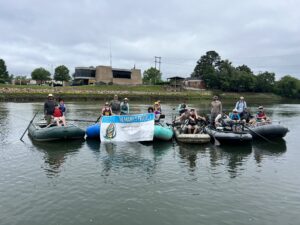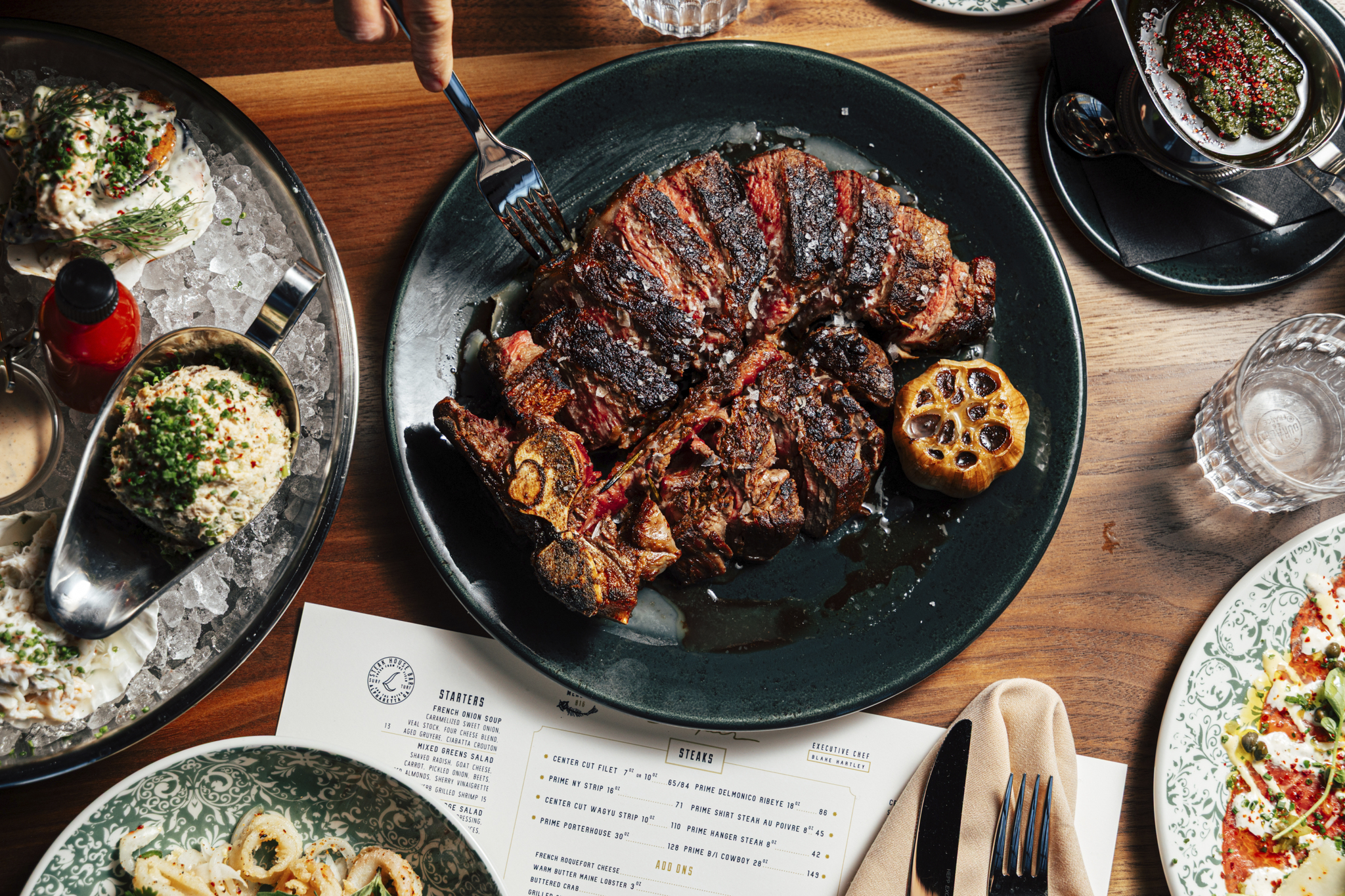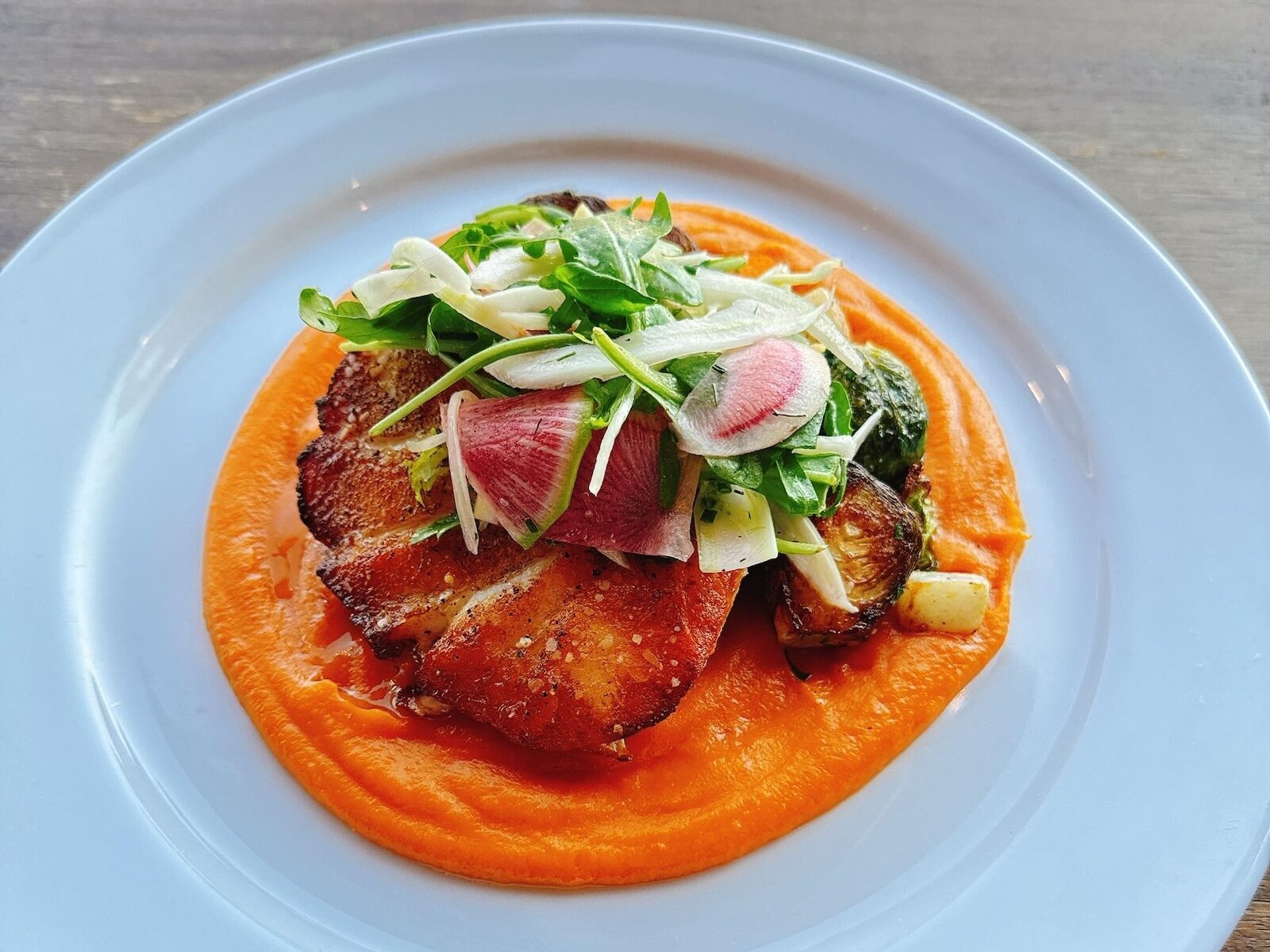I’ve fished in salt water, fighting swells on a deep-sea charter and closer to shore, trolling behind a bay boat. I’ve angled for finned friends in fresh water, watching from a pond bank as a red-and-white bobber bounces with a catfish nibble and working a rod and reel from the bow of a glitter-covered bass boat on a river. I’ve even tossed a bright-hued nymph tied to the end of fly line back and forth and back and forth again in hopes that a trout will rise from a bubbling mountain stream.
It may sound like I’m an avid fisherwoman. I’m not. I don’t like fishing. It’s often hot and buggy and calls for early mornings. And even when the environs are pleasant (read, not hot), it’s always boring to me. And that’s because, despite the aforementioned diverse attempts over decades, I’ve only ever caught a handful of fish for all my troubles, making me, at least statically speaking, a fishing failure. I don’t enjoy things I’m not good at, and thus, I don’t like fishing.
But I like The Mayfly Project. A short conversation with Rowell Guevarra, who founded Alabama’s first Mayfly Project in Auburn three years ago, hooked me on the concept.
Started in Arkansas in 2015, the nonprofit The Mayfly Project harnesses the power of fresh air and fly fishing to help foster kids cope with stress and trauma, pairing children with adult mentors who teach them the sport.
Now a national organization, The Mayfly Project got going in Alabama after Guevarra heard about the program on an outdoor-focused podcast. He already loved fly fishing and understood its healing potential. “During 21 years in the Army, I deployed eight times,” he says. “I lost more soldiers to suicide than in those eight deployments combined, so when I retired, I was looking for a way to help veterans.”
Guevarra discovered Project Healing Waters, a group using fly-fishing to aid vets and first responders with PTSD, and jumped right in. “I got really involved and embraced everything about fly fishing and the fly-fishing community,” he says. Not long after, while listening to a podcast, he learned how The Mayfly Project was doing something similar for kids.

(Jennifer Kornegay/Contributed)
“I thought, of course! It works for adults, so why not kids too?” He called the closest Mayfly chapter, which at that time, was in Atlanta, to volunteer. However, during his interview, the leader there encouraged him to start a chapter in Alabama instead. “I agreed. I knew it would be easier to be closer to home, but also, I wanted to offer this amazing opportunity to local kids,” he says. Guevarra put up a short “help wanted” post on an Alabama fly-fishing Facebook page, and soon he had a group of mentors ready to bring the popular pastime’s multiple benefits to kids in the Auburn area.
Mayfly works with boys and girls, ages 8 to 17 who are currently in the foster care system or who have been in it. The idea is simple. By teaching casting techniques, fly tying, a little fish biology, the importance of environmental conservation, and more, The Mayfly Project also teaches kids practical skills, builds character, and boosts their self-esteem.
But, as I can attest, fly fishing itself is anything but simple. The patience and perseverance required are valuable lessons to learn and are exactly why fly fishing achieves the project’s goals, as Guevarra explains. “The mental focus fly fishing takes provides a needed escape from stress,” he says. “You’re concentrating so much on your cast; the focus on that moment and what is right around you keeps you present. You clear your mind and kinda zone out, so you’re not thinking about your worries.” Plus, time in the outdoors is always a positive. “We get them on the water, and these are places that are quieter, no jet skis or loud music from boats,” Guevarra says. “They start to form real bonds with nature.”

(Jennifer Kornegay/Contributed)
Each Mayfly Project group meets over five months, often outside, sometimes at an area pond or lake, and culminates with the final meeting, a fly-fishing float trip on the Chattahoochee River where the kids and their mentors put their newfound knowledge to use. The kids use their new fly-rods, reels, and flies gifted to them by The Mayfly Project. They smile and laugh catching bass and bream, and while fishing is the focus, it’s not what really matters.
“Our goal is not to make them expert fly anglers. We really want to give them the space and chance to just be a kid with a fishing rod, to have these great positive adult interactions, and to begin to understand how what they’ve learned applies to more than just fishing,” Guevarra says. “Fishing is just the vehicle we use to engage them.”
It’s working. Before the Auburn chapter marked its first anniversary, Guevarra and his team helped start a chapter in Huntsville and then one in Birmingham. In three years, Alabama got three Mayfly Project chapters, and to date, approximately 40 kids have participated in the project. Guevarra recently handed the Auburn chapter to one of its mentors to lead, and he joined a national team put together by Mayfly Project’s founders that works to help start new Mayfly Project chapters around the country.
While The Mayfly Project work has its challenges—“Teaching 10 eight-year-old boys can be exhausting!” Guevarra says—the rewards both the mentors and kids reel in are more than worth any hassle. “We’ll get a text from foster parents telling us this kid can’t stop talking about fishing, or a kid will tell us it’s the best day they’ve ever had. Or you see them in the grocery store, and they run over to hug you. That stuff recharges you fast and reminds us of the impact we’re making,” he says.
Not all Mayfly Project kids continue fly fishing, but many do, often taking their new passion home and spreading it to others. And Guevarra knows that whether they ever pick up a rod again, they’ll hold onto the experience. “Fly fishing is such a pure feeling, and there’s nothing else like it,” he says. “We watch these kids grow so much in so many ways over just a few months.” And when the kids are done, along with a box of beautiful flies, a rod, and a reel, they take with them happy moments Guevarra believes will help them deal with the hurts of their past and better equip them to face future hard times. “That’s our hope; that we give them meaningful memories,” he says.
I hope I get the chance to go fishing with Guevarra and The Mayfly Project because I also hope his fly-fishing enthusiasm can change my anti-fishing attitude. (I’m working with Guevarra now to find a time.) If you’d like to help Alabama’s Mayfly Project chapters, they all always need volunteers. You don’t even have to know how to fly-fish. And monetary donations are welcome, too.
Visit themayflyproject.com for more details and to learn how to get involved.




